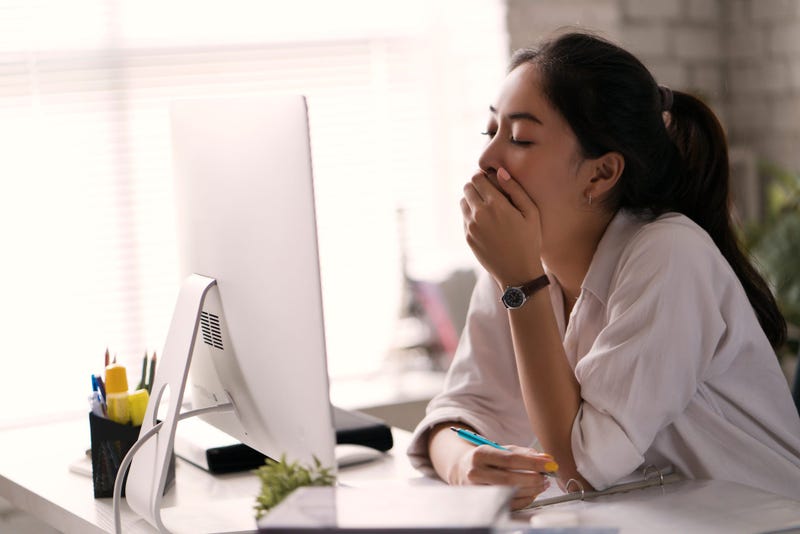
CHICAGO (WBBM NEWSRADIO) -- Illinois Department of Labor Director Michael Kleinik joined with state and national safety experts to highlight the serious dangers posed by fatigue in the workplace, a growing problem and a focus of National Safety Month.
"Workplace safety makes most of us understandably think about proper training, proper equipment and a safe work environment," said Kleinik, in observance of June as National Safety Month. "But a good night's sleep can be just as important as these other safety fundamentals. A tired worker can pose a serious risk to himself or herself as well as to coworkers."
Studies indicate 13 percent of workplace injuries are attributed to fatigue and 43 percent of American workers say they sometimes are too tired to function safely at their job. Fatigue is estimated to cost employers more than $136 billion annually in health-related lost productivity. It can also be deadly.
The U.S. Department of Labor notes that decreased alertness from worker fatigue was cited as a factor in some of the most tragic industrial disasters, including the 2005 Texas City BP oil refinery explosion, the nuclear accidents at Three Mile Island and Chernobyl and even the 1986 Space Shuttle Challenger explosion.
Certain workers are more likely to suffer from workplace fatigue, especially those who work irregular or extended shifts, such as those in transportation, healthcare, police and firefighters and others whose jobs require rotating shift work. But other factors, such as long commutes and simply not sleeping enough, can contribute to fatigue even for those with regular shifts.
Regardless of the cause, workplace fatigue certainly increases the risk of injury and illness on the job. According to the U.S. Department of Labor, accident and injury rates are 18 percent greater during evening shifts and 30 percent greater during night shifts when compared to day shifts. Long shifts, such as 12-hour days, spike injury risk by almost 40 percent.
"A rested worker is a safer worker and makes for a safer work environment for everyone. It's easy to overlook something so basic as sleep but we do so at our own peril," Kleinik said.
